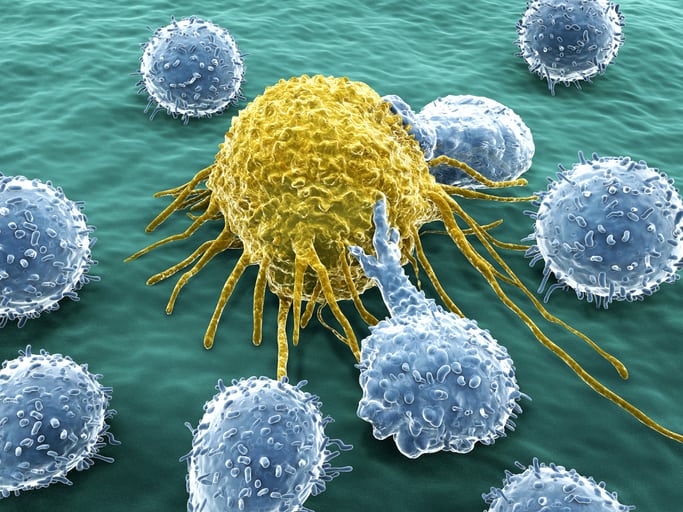Erlotinib-based EGFR targeted therapy has proven significant clinical improvement against non-small cell lung cancer (NSCLC). However, the anticancer activity of Erlotinib (Ertb) is limited by the development of Ertb resistance and possess a challenge to clinicians and patients. To explore a better therapeutic strategy, we evaluated Ertb in combinations with different natural products. We identified that Ertb and Quercetin (Quer) combination is more synergistic against A549 and NCI H460 cells compared to Ertb with Fisetin/Carnosic acid/Luteolin. To further improve the efficacy and overcome the limitation of free therapeutics, Ertb and Quer loaded solid lipid nanoparticles (EQNPs) were prepared using Chitosan-MA-TPGS polymer by hot homogenization method. The drug-loaded nanoparticles (NPs) have shown high encapsulation efficiency (77% Ertb and 71.4% Quer) as well as small particle size of 87.3 ± 0.78 nm and positive zeta potential + 13.4 ± 1.12 mV. At pH 5.5, Ertb and Quer were released at their highest levels. We found that, EQNPs decreased the expression of P-glycoprotein (P-gp) and nuclear epidermal growth factor receptor (nEGFR). EQNPs increased the uptake of Ertb and Quer, and apoptosis induction in Ertb resistant A549/ER cells. Further, in vivo EQNPs formulation have shown increased uptake of nanoparticles in the lung tissue and significantly reduced the expression of nEGFR. Thus, EQNPs may be developed as a targeted medicine with minimum side effects for treatment of NSCLC to improve the quality of life and survival of NSCLC patients.Copyright © 2022 Elsevier B.V. All rights reserved.
Co-encapsulated nanoparticles of Erlotinib and Quercetin for targeting lung cancer through nuclear EGFR and PI3K/AKT inhibition.


